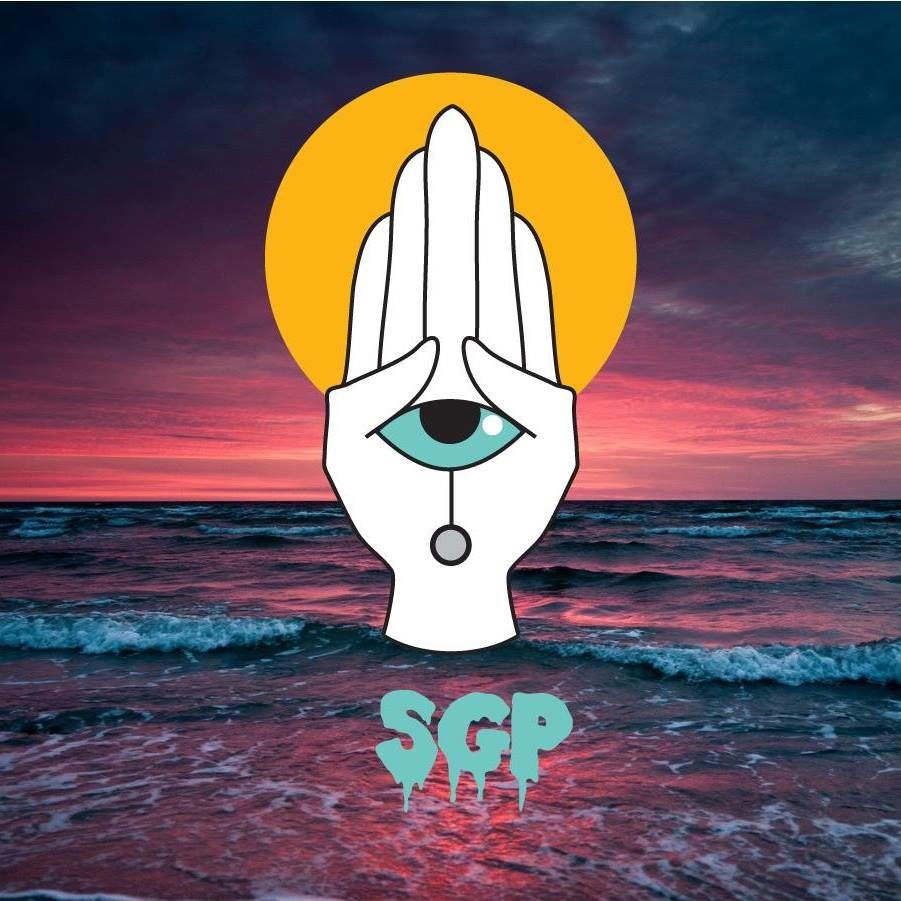
Modern Paganism has a large vocabulary of highly specialized language.
This glossary is intended as a quick reference guide; these definitions are highly simplified and this list is not exhaustive.
☀️ God:
A divine being. Masculine-by-default, semi gender neutral.
Feminine form: Goddess.
Gender neutral forms: Divinity, Deity, Godds
Genderqueer form: Goddex
Theism:
The belief in one or more divine beings.
Atheism:
The view that there are no deities or supernatural phenomenon.
Atheo-paganism:
A naturalistic, non-supernatural approach to paganism.
Nontheistic paganism:
A form of Paganism that does not acknowledge deities.
Agnosticism:
The view that the existence of the divine or the supernatural is unknown or unknowable due to the limitations of our perceptions.
Panentheism:
The belief that the divine pervades and interpenetrates every part of the universe and also extends beyond time and space.
Deism:
The belief in a supreme creator deity who does not presently intervene with existence.
Monotheism:
The belief that there is only one deity. Usually one that is omnipotent (all powerful) and omniscient (all knowing).
Henotheism:
The worship of one particular deity, while accepting the existence of others.
Polytheism:
The belief that there are many deities, and they are distinct and separate beings.
Pantheism:
The belief that there is one god, but that god wears many faces.
Note: There is active debate about the difference between and definitions of hard/soft polytheism and its overlap with pantheism.
☀️ Animism:
The worldview that all things have a living spirit or spiritual essence; a life-force that permeates them, regardless of status as a ‘living’ or ‘animate’ being. This includes plants, rocks, words, chairs, people, ext.
☀️ Chaos magic:
A modern magical system which posits the power of belief itself as a tool and mental flexibility from the constraints of dogma. Rooted in political and artistic subversion and Ceremonial Magic.
☀️ Wicca:
A contemporary pagan religion. Not all witches are Wiccans.
☀️ Witchcraft:
☀️ Pagan:
An umbrella term for people who practice some form of pagan religious or spiritual beliefs.
☀️ Witch:
A person who practices witchcraft. Although the term is feminine-coded in popular culture, in common usage by pagans it is gender neutral. Warlock and Wizard, masculine equivalents, are used infrequently.
Other Common Self-identifiers:
Pagan, Sorcerer, Necromancer, Priestess, Magician, Magic User, Occultist, Cunning Folk, ext. [Qualifier] Witch such as Hedge Witch, Green Witch, ext.
Note:
Some terms and identifiers such as Shaman should be avoided for being culturally insensitive or appropriative.
☀️ Ecstatic practice:
A state in which an intense visionary experience is attained through trance/altered states of consciousness. Does not necessarily require entheogens/drugs. Sometimes also referred to as ‘gnosis’.
☀️ Altars and shrines:
Some people use altar and shrine interchangeably, as sometimes they fulfill both functions simultaneously. They can be permanent installations, portable or temporary.
Shrine:
A space dedicated to the devotion/veneration of a particular being/concept.
May include a space to leave offerings. Useful as a contact point to deepen a relationship.
Altar:
A place in which to participate in/use as the focus for directed magical workings.
☀️ Astral temple:
An intangible space one constructs with their mind to enable them to step outside of ordinary consensus reality. Useful to prime the subconscious with anticipation that something special is going to take place. A willfully formed liminal space.
☀️ Liminal space:
Hidden in-between the worlds where magic lives; the sense of wonder, intensity, weirdness and possibility. Liminal spaces often lead to a sense of heightened perception and presence in the now. Liminality can be induced by the subversion of expectations and circumstances, or deliberately by ritual.
Liminality punches through the barriers that keep us tethered to our everyday thoughts and concerns. Liminal spaces are often temporary, transitional, ambiguous, natural or sacred.
☀️ Consensus reality:
What is generally considered to be factual by the majority of people in any given culture. The mundane, material world.
☀️ Sigil:
A type of spell, or ritualized intention, usually in the form of an abstract symbol.
☀️ Pop-Culture Magic:
An offshoot of Chaos Magic which employs the symbols and cosmologies of the mythic or modern fictional media.
☀️ UPG:
Acronym for ‘unverified/unsubstantiated personal gnosis’. Personal experiences and understandings not backed up by established lore. For example, associating Haephestus, the ancient Greek god of fire and forge, with power tools, or a private conversation held with a god.
☀️ Grounding:
A meditative process to calm the mind and drop one’s awareness into the body and the present moment. It is especially important to ground both before and after ecstatic work. It is a good practice to eat only a light meal before a ritual, for magical-energetic reasons and also practically, so one does not become overly sleepy. For this reason, snacks make an excellent part of the post-ritual grounding process.
☀️ Aligning and centering:
A meditative process for expanding consciousness and bringing one into a state receptive to magical work. Usually performed after an initial grounding.
☀️ Earthing:
A way to dispel any lingering energies at the end of a ritual. Thi could take the form of clapping, shaking it out, ext. Depending on the context may also be referred to as banishing, such as when entities are dismissed.
☀️ Magical tradition:
A magical tradition is a body of techniques, practices, culture, works, ritual, philosophical and religious beliefs pertaining to one particular form of magic or occultism.
It may be used to refer to a specific branch of a religion; for example, Alexandrian Wicca and Gardnerian Wicca are lineaged magical traditions within British Traditional Wicca.
The SGP is an emerging tradition with no direct parentage from any other traditions, religions or initiations.
☀️ Lineage:
A magical lineage usually refers to initiatory traditions that have passed down directly from one person/group to another.
☀️ Initiation:
Initiation varies drastically between traditions.
Initiation is often deeply personal, private, or even secret. It is often an intense, life-changing transformative process.
Some forms of initiation may occur through important life events, through spirit contact, mentor/s, or be self-motivated.
Last update 28/04/2019
